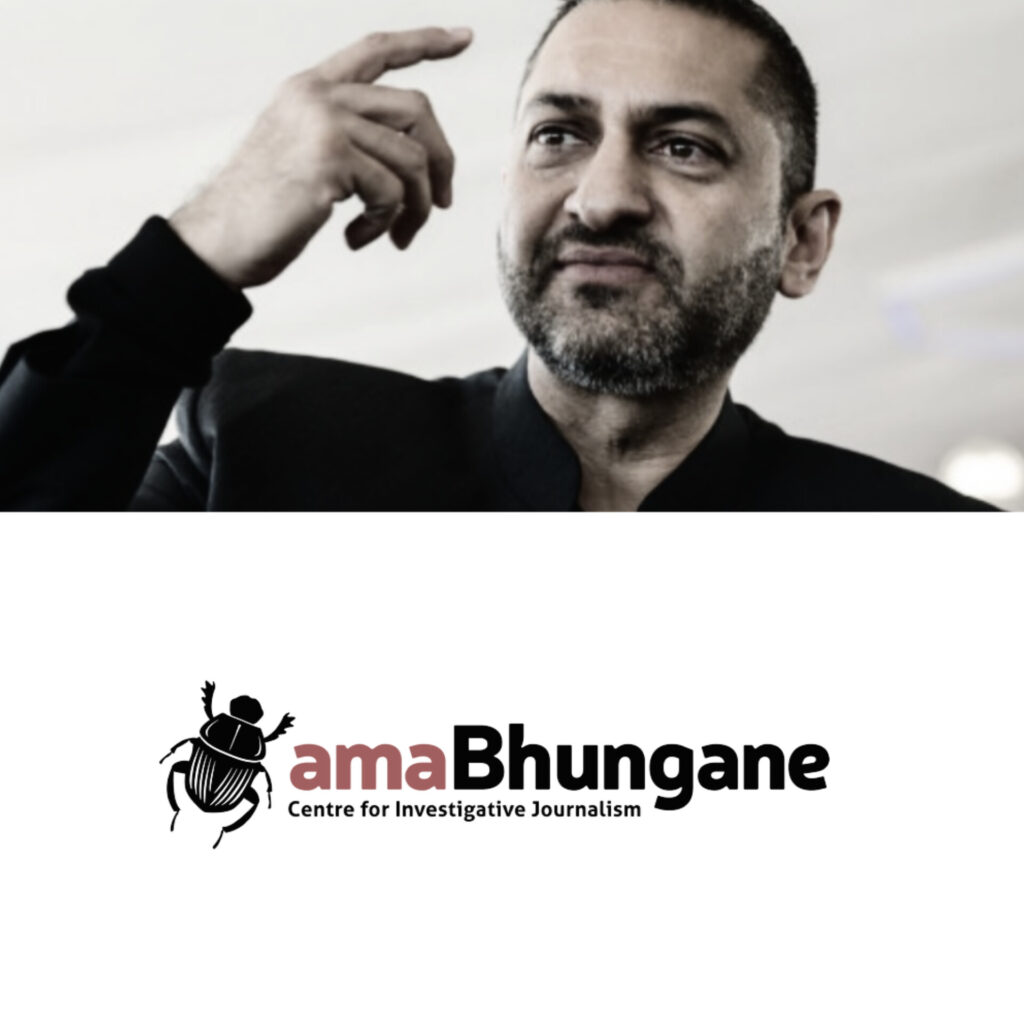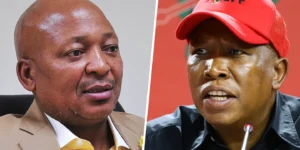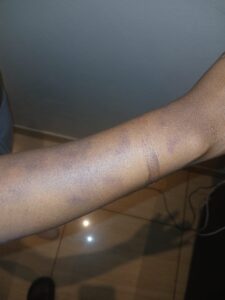By: Clyde N.S Ramalaine
The state of journalism in South Africa evidences an industry in sharp decline, bedridden with terminal cancer, often weaponized in proxy wars. Investigative journalism represents that specialised dimension concerned with analytical research and corroborated information primarily associated with major crimes like corruption. Wikipedia explains the construct of investigative journalism as follows: ‘…a form of journalism in which reporters deeply investigate a single topic of interest, such as serious crimes, political corruption, or corporate wrongdoing.’ Academic and journalist scholar Steve Weinberg defined investigative journalism as: “Reporting, through one’s own initiative and work product, matters of importance to readers, viewers, or listeners.”
Gone are the days of journalists informing the public about incidents, events, and occurrences in which the public is empowered to make up their minds based on the information provided. One involuntarily thinks of the days of a breed of journalists such as Aggrey Klaaste, Don Mattera, Jon Qwelane, and Joe Thloloe, to name a few. These defined a breed and era of journalism craft that had respect for the industry and sector they plied their trade. These applied their skill and craft in the dark days of apartheid when media was a captured reality in service of an ideological and violent hatred of the black identity.
In my search for understanding the possible decisive moments when South Africa consciously or subconsciously experienced a change in journalism, I concluded there are perhaps two distinct moments I will herewith, in an adumbrated sense, refer to as specific highlights in 1994 and December 2007. The historical moment of 1994, when political power found a new identity as black-led while the other moment was the December 2007 Polokwane ANC 52nd elective conference, where Thabo Mbeki lost to Jacob Zuma. In case you wonder what happened to white power and money when the 1994 elections delivered an ANC black-led era. By now, we all know that white power in South Africa is not as clearly distinguishable in conservative and liberal notions; instead, it is best understood in hegemony of white identity interest. It is for this reason that in the aftermath of the loss of political power, these reconfigured themselves in pseudo-civil society formations and media entities now used to deal with black leadership across all spheres, pointing out how incompetent and corrupt blacks are.
On the other score, the post-Polokwane era produced a new breed of black [The Biko- cohort of Africans, Coloureds, and Indian] journalists beholden to tainted African National Congress factional identities. These would increasingly migrate to become fully fledged and connected political actors bidding for a particular faction. We would directly have embedded journalists who would fight proxy wars on behalf of politicians and camps in the ANC. Some in colloquialism of the ANC lexicon would become ‘members of members’. The proximity and intimacy shared by some journalists with politicians saw an industry poisoned. This era would produce the interesting, colourful Ferial Haffajee, the late Karima Brown, Ranjeni Munusammy, and Quanitha Hunter, to name a few.
South Africa would now encounter journalists who overnight become analysts and specialists on politics, at least ANC internal politics, no longer reporting but consciously sharing their views, thus becoming part of the conversation feeding South African minds with a claim of public interest as their self-truth. While some contend a political and economic agenda detailed the fundamental drivers for their roles. We would hear of brown envelope journalism, journalists on retainers, ready to be deployed as mercenaries annihilating the opposition of those who enlisted their services.
I wish to postulate that it is in the cross mix and tradewinds of white political power loss and ANC factionalism that the canvas of journalism produced what I will call special projects of entities identifiable as amaBhungane and the Daily Maverick, not forgetting the slew of schizophrenic civil society formations some mindlessly obsessed with a Jacob Zuma such as FUL, Helen Suzman Foundation, AKF, OUTA, Solidarity, AfriForum, CASAC, Nelson Mandela [often mistaken as a white organisation, for its appetite to entertain projects presented by whites] and Section 23 to name a few. When I cite these institutions here, it is to draw a line of interest that they collectively define as per their public presence and interests.
We have come full circle. Questioning and suspecting black politicians, black businesses, and black professionals and black academics is now standard and acceptable. Even the youngest generation of journalists cut their teeth on this objective and detail a group that duly internalised this black self-hate. Journalism would now be about exposing the black identity marker.
As in the dark days of apartheid, black lives are cheap and warrant vilification by the same agenda now clad in media and civil society kaftans, just more sophisticated because national interest is dangled in picket fences to veil the old agenda. AmaBhungane has a track record of exposing corruption, particularly concerning black politicians, businesses, professionals and academics. It has also become common for agencies such amaBhungane to play the victim and cite them as being attacked when they are conveniently oblivious to the vile attacks they lead against others.
The MOTI case against amaBhungane emanates from its claim against a former employee Clinton Van Niekerk who stands accused of having stolen company information, ‘editable’ documents to be specific, and availed that to third parties, including amaBhungane, which in turn published it. Van Niekerk was arrested in January at Durban’s King Shaka International Airport for the ‘theft of information.’
In papers before the courts, Zunaid Moti stated that in 2022 van Niekerk stole more than 4,000 private and confidential documents from the Group. He then shared these documents with third parties to tarnish the Moti group’s reputation. In April, amaBhungane published articles based on the stolen documents about Zunaid Moti and the Moti Group of companies, which he led as CEO until his March resignation. On Tuesday, June 3, the Moti Group approached the Johannesburg High Court seeking an urgent interdict against amaBhungane, among others demanding the immediate return of thousands of ‘leaked’ documents.
Attorney Ulrich Roux, representing the Moti Group, clarified that the June 1 order was not intended to have been a “gagging order” against the media and amaBhungane but had to be seen in the context of a “clear case of theft committed by an ex-employee,” who downloaded more than 4,000 “editable” Moti Group documents before resigning.
The fears of the Moti Group, as expressed in an affidavit by the new CEO Dondo Mogajane as presented in court, contends that the stolen documents: ‘in the wrong hands, will cause the Moti Group reputational damage if a false narrative based on the stolen documents is advanced, which is currently the case.’
The original court order in favour of the Moti Group instructed amaBhungane to return the leaked information within 48 hours and to prevent further publication until a Court scheduled to sit in October had heard the case.
In a recent article in the Daily Maverick on the Moti & amaBhungane case, William Bird asserts, ‘The Moti Group’s case against amaBhungane matters to every person in South Africa. If we let the interdict stand, whistleblowers will be exposed to greater risk, and the job of investigative journalists will be even harder.’
I wondered why Bird convinced himself that the Moti case matters to every person in South Africa. Firstly, it would appear the aggregate information as published by amaBhungane on the Moti matter, as can be seen from its first to its last April 28, chronicles, if not centres a subject matter of Zunaid Moti and his apparent links to the Zimbabwean president Emmerson Mnangagwa.
We also must appreciate that the Moti Group has a physical presence in Zimbabwe, a neighbouring state. In South Africa, as elsewhere it is typical for business and politics to interact. From the amaBhungane’s platform, the following critical takeaways from the Moti Group documents in its possession:
‘Leaked documents detail how the controversial businessman courted political influence in Zimbabwe while pushing for often outlandish concessions for himself and his companies.’
‘A major $120-million transaction during Zimbabwe’s 2017 coup was followed by payments to companies linked to the post-coup leadership of the country.’
‘Formal and personal letters show a seemingly intimate relationship with both post-coup president Emmerson Mnangagwa and Vice President Constantino Chiwenga.’
Therefore, advancing the Moti case matters to every South African is a stretch because South Africa is not the scene of the alleged crimes, if any, but Zimbabwe is the geographical node. Instead Bird should contend that the case interests Zimbabweans, not South Africans.
Secondly, Bird, on the somewhat forced diaphragm of a sensitive and equally important subject of whistleblowing, attempts to hang his ‘every South African’ fabrication. There is consensus in all sober and anti-corruption minds that corruption is an enemy and warrants flagging and exposure. Also, there is the firm conviction that all whistleblowers enjoy protection since they are vital to uproot corruption.
Bird may unveil the arrogated license that a particular elite agenda adopts to assume they speak for the entire South African populace. We cannot assume all media talk is in the people’s interest. We cannot uncritically assume that platforms such as amaBhungane are neutral and are exempt from a particular interest, less the interest of South Africa. An honest assessment of our South African media platforms details ownership, sponsorship, and vested interest that, in some instances, extends beyond the geographical confines of South Africa.
We have long come to debunk the idea of media as independent, intrinsically objective, naturally fair, and honest.
We have lived through too many apologies and withdrawals, albeit usually at a much smaller size in their print, to assume media is independent and not beholden to those who own it. In the USA, we see how CNN and FOX, to name a few, operate; we know whom they recruit and whom they go after in the personalities of politicians. South Africa is no different. amaBhungane may claim its work is in the interest of South Africans, yet we must consider who makes up these South Africans it may claim to be speaking for. Unfortunately, some in the media spaces tend to feed off the genuine fears of South Africans abusing these while usurping their agency, therefore, speaking on behalf of their interest.
Notwithstanding the motives for the act of stealing the documents, which Moti Group’s former employee, Van Niekerk until now has not anywhere made known, we dare not confuse issues; if copies of documents were illegally obtained or otherwise stolen from anyone, company, or entity, is there a case of theft?
If the stolen documents, as in this case advanced as ‘editable’ documents, are being used for either publishing or solicitation, do these not constitute crimes that warrant being ventilated and investigated?
It cannot be that we adopt a mindset that because it is a particular person, [framed by media in concert with other interest in a discourse of a demon] the media goes after, it is right to justify the wrong. We saw that with Jacob Zuma, the rules changed.
We warrant affording the Moti Group to make its case against the ex-employee. The subject of content and whether such access unveils corruption or intentions of corruption is another matter and warrants being separated.
We must also ask if Moti Group has a legitimate case for reputational damage due to amaBhungane publishing this information, mainly since the documents claimed are editable. The issue we must engage in is whether publishing the stolen documents in whatever form has a bearing on reputational damage, meaning once published, the damage is done. At the same time, what recourse exists for those tarnished through such publication when no crime ever may be proven?
Bird uses this to implore us to accept that amaBhungane for receiving allegedly stolen editable documents from a private company and publishing the same as an acceptable practice in journalism.
Let us hear Bird, “Closer to the case, imagine that the Guptas had sought a similar interdict against Daily Maverick and amaBhungane over the Guptas’ leaked email database. Not only would the names and identities of the whistleblowers almost certainly have been exposed, but we would not have learned as the public of the extent of corruption and State Capture.”
Bird thus takes the latitude to justify the leaking of the infamous Gupta emails, a known crime committed at the time, albeit in what some deemed justifiable means to unearth corruption. To make his case stand, he, in typical jaundiced fashion, attempts to justify the leaking of Gupta emails, which nowhere in any court could ever stand as we have thus far seen. The fact is that Daily Maverick obtained the Gupta emails illegally and would, in any case, have to face this as a reality for its harvested content to be helpful for a conviction.
Suppose the Moti Group or any of its leadership have committed any crime whatsoever and wherever; please let them be arraigned and charged to face a court of law to answer to the rightful charges.
However, if they are targeted in an orchestrated toxic network of interests in which a Zimbabwean President Mnangagwa is identified for regime change and South African local media platforms such as amaBhungane sponsored by whoever is politically and expeditiously used to enable such, such campaign warrants also being exposed. Such a campaign cannot hide behind the important constitutional values of press freedom, investigative journalism, whistleblowers, and a South African interest when they stand accused of being involved in proxy wars.
To jog our collective memories, an August 2022 article, “Manufacturing consent: How the United States has penetrated South African media,” penned by Ajit Singh and Roscoe Palm, paints a captivating tale and identifies Sam Sole, Co-Founder of amaBhungane as conflicted. The authors contend, “Politically motivated sponsorship of prominent South African media outlets by the United States dates back decades to the apartheid era. According to internal U.S. government documents, these operations aimed “to counter the strong Marxist campaigns” in the country. This funding was circulated by the National Endowment for Democracy, an organization created by the Reagan administration in order to re-brand U.S. covert operations that were previously carried out by the Central Intelligence Agency.”
A follow-up article, ‘Hiding in Plain Sight: The Capture of South African ‘Independent’ Media by the U.S. State and Big Capital’ penned in September 2022 by Phillip Dexter and Roscoe Palm, contends:
“When the independent left publication New Frame closed down after four years of operations, the liberal media rushed in, in unseemly haste, to put the boot in. Perhaps the worst of the attacks was penned by Sam Sole and Micah Reddy of the investigative journalism outfit amaBhungane. They alleged, based on nothing more than salacious gossip, that there was an attempt to influence public discourse in South Africa by, the Chinese state. Not a shred of evidence was provided for this conspiracy theory by Sole and Reddy in an article that was largely based on innuendo. They abused the institutional authority of amaBhungane as a trusted publication to give credence to a conspiracy theory, one that aligned closely with the key tropes being driven by the United States in the New Cold War.”
Dexter and Palm assert: “This quite bizarre experience led us to wonder who funded amaBhungane, and what the drivers were for such vehemence by publications that claim to be fair, even-handed, and balanced. Those questions soon led us to an intricate web of relationships that are clearly designed to hide the influence of powerful funders and networks.”
Listening to Dexter and Palm, connecting amaBhungane in questionable funding and directly to a USA agenda, raises questions on another level and potentially draws links to Moti and Zimbabwean President Mnangagwa.
We warrant hearing Weinberg again on his definition of investigative journalism. It is “Reporting, through one’s own initiative and work product, matters of importance to readers, viewers, or listeners.” Steinberg’s ‘own initiative and work product’ could have included something other than entertaining stolen documents. The logic of a media that answers to no one as not obliged to explain its obtaining of information presents a precarious situation.
Unfortunately, it can extend to weird but real possibilities where journalists with particular agendas may seduce those who they later will call whistleblowers to break the laws and see it as justifiable for the outcome it seeks to prove.

-Political Analyst, Author Freelance Writer
-BTh. (Hons-Status) UWC, MA Systematic Theology cum laude NWU, Ph.D. [Politics & International Affairs] UJ,
-SARChi & CADL [Centre for African Leadership Development] Post-Doctoral Research Fellow








Why is the Moti Group hell bent on hiding the information in the documents if its clean and not sinister. The guy who stole the information from the Group is class as a whistle blower, and if I remember well, shch people are protected jn SA. Instead of fighting amaBungane, and trying to stop them from publishing the information, the Moti Group should turn all their efforts to their ex employee. What is that which the Moti Group is protecting. You argue that its theft by the employee, correct. Then why not report him to the relevant authorities who deal with such cases.
Thieving can never be journalism and neither can weaponising journalism against rising and risen black people like amaBungane are hell bent in doing.
The fixed narrative they peddled against Moti and other emerging and emerged black people must be fought at points of occurrence, the public domain in this instance.
Dr Ramalaine has done well in his critique of amaBhungane rotten and biased tendencies.
We can’t be quite and helpless in the face of a media weaponised against our being and emergence.
So if we did the same we would been charged with industrial espionage and label corrupt and thiefs but because he is white he is a whistle blower we will do the same and steal information and see what will they say and do